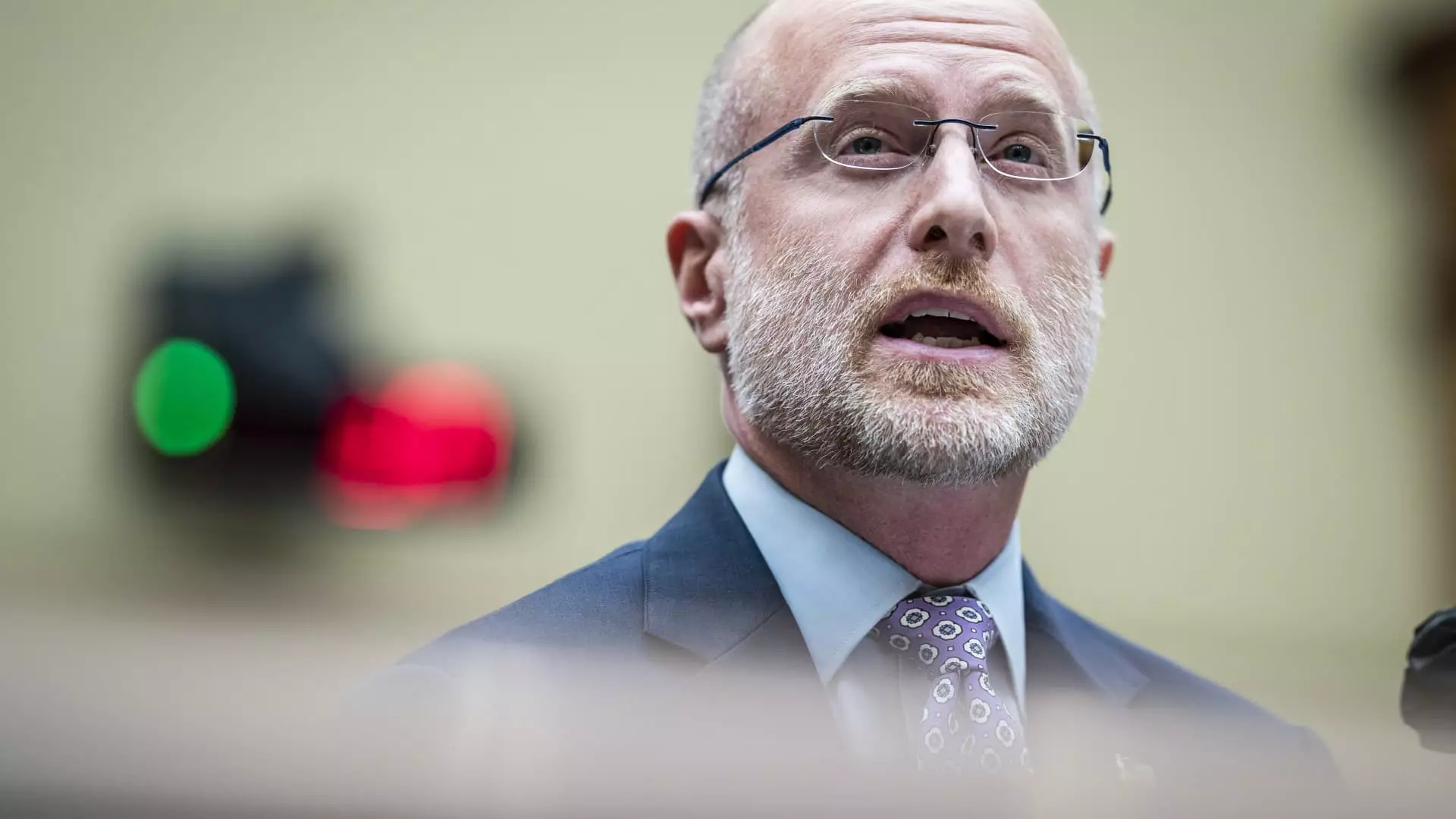The announcement of Brendan Carr as the selected chairman of the Federal Communications Commission (FCC) signals a notable shift in the telecommunications landscape in the United States, especially with Donald Trump now poised to assume office again. Carr, who has been an outspoken critic of the Biden administration’s strategies concerning telecommunications and technology regulation, promises to steer the FCC towards an approach that defends the interests of free speech and challenges what he perceives as censorship by major tech platforms.
In his current role as the top Republican commissioner of the FCC, Carr has publicly criticized actions taken by the previous administration regarding broadband initiatives, particularly vocalizing his disapproval of decisions related to an almost $900 million subsidy package for Elon Musk’s Starlink satellite project. His adversarial stance toward the Commerce Department’s broadband infrastructure program and President Biden’s spectrum policy sets the stage for a contentious relationship with existing governmental strategies when it comes to increasing internet access.
Carr’s outspoken nature extends beyond basic telecommunications infrastructure; he has also called out major companies like Meta (Facebook), Google, Apple, and Microsoft, accusing them of actions that undermine the free speech of American citizens. His assertive position on the matter indicates an impending regulatory atmosphere that may serve to scrutinize the operations of these tech giants intensively.
Moreover, Trump’s comments regarding traditional media outlets such as ABC, NBC, and CBS, hint at a looming conflict between broadcasting networks and regulatory bodies. The insinuation that they could potentially face license revocations under Carr’s leadership reflects an unprecedented dynamic where the FCC may confront media organizations over perceived biases or censorship, sowing seeds of uncertainty in the media landscape.
Carr’s ascent also welcomes back a vocal defense of conservative principles within the FCC. Trump’s commendation of Carr as a “warrior for Free Speech” illustrates a broader Republican strategy that positions itself against the prevailing narratives shaped by mainstream media and technological oversight. This invigorated stance resonates with a segment of the American public that feels alienated by generalized tech policies.
However, Carr’s history also entails significant opposition to landmark net neutrality rules, which were reinstated under the Biden administration but presently face challenges in the judicial system. His resistance indicates that the FCC under his leadership might pursue a deregulated environment, echoing trends from the previous Trump administration and potentially altering the balance between consumer protections and corporate freedom.
As Carr prepares to lead the FCC, a plethora of challenges await him. One immediate task is filling vacancies within the five-member commission, a maneuver crucial for consolidating control and enacting policy changes effectively. As the FCC navigates the complexities of modern telecommunications—ranging from broadband accessibility to international relations with countries like China—the direction taken by Carr will undoubtedly play a pivotal role in determining the landscape of American communication for years to come.
Brendan Carr’s election as chairman represents more than just a bureaucratic appointment; it unveils a battleground for ideological warfare over speech, media, and tech regulation, fostering an atmosphere where traditional norms may be upended and redefined.

